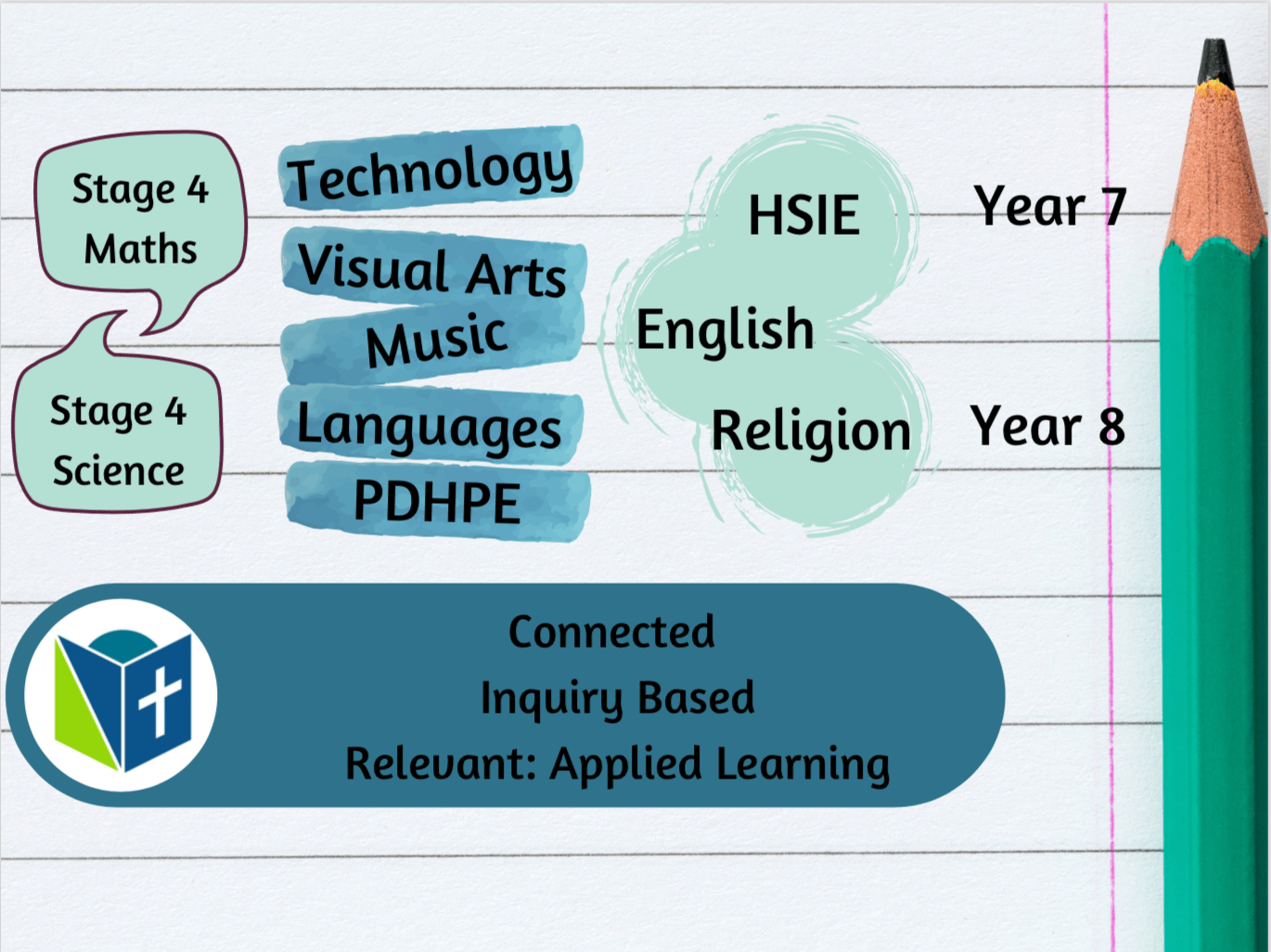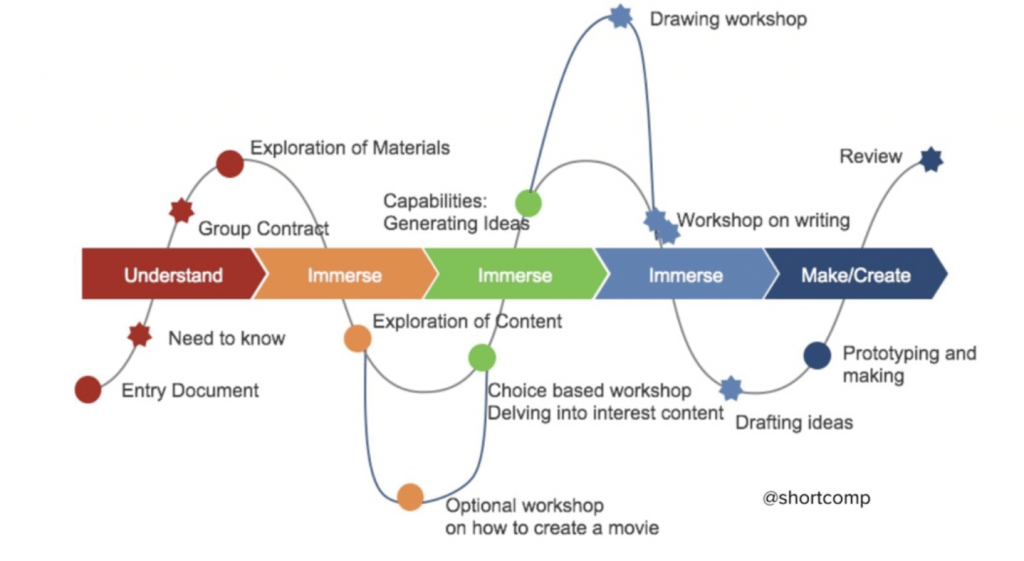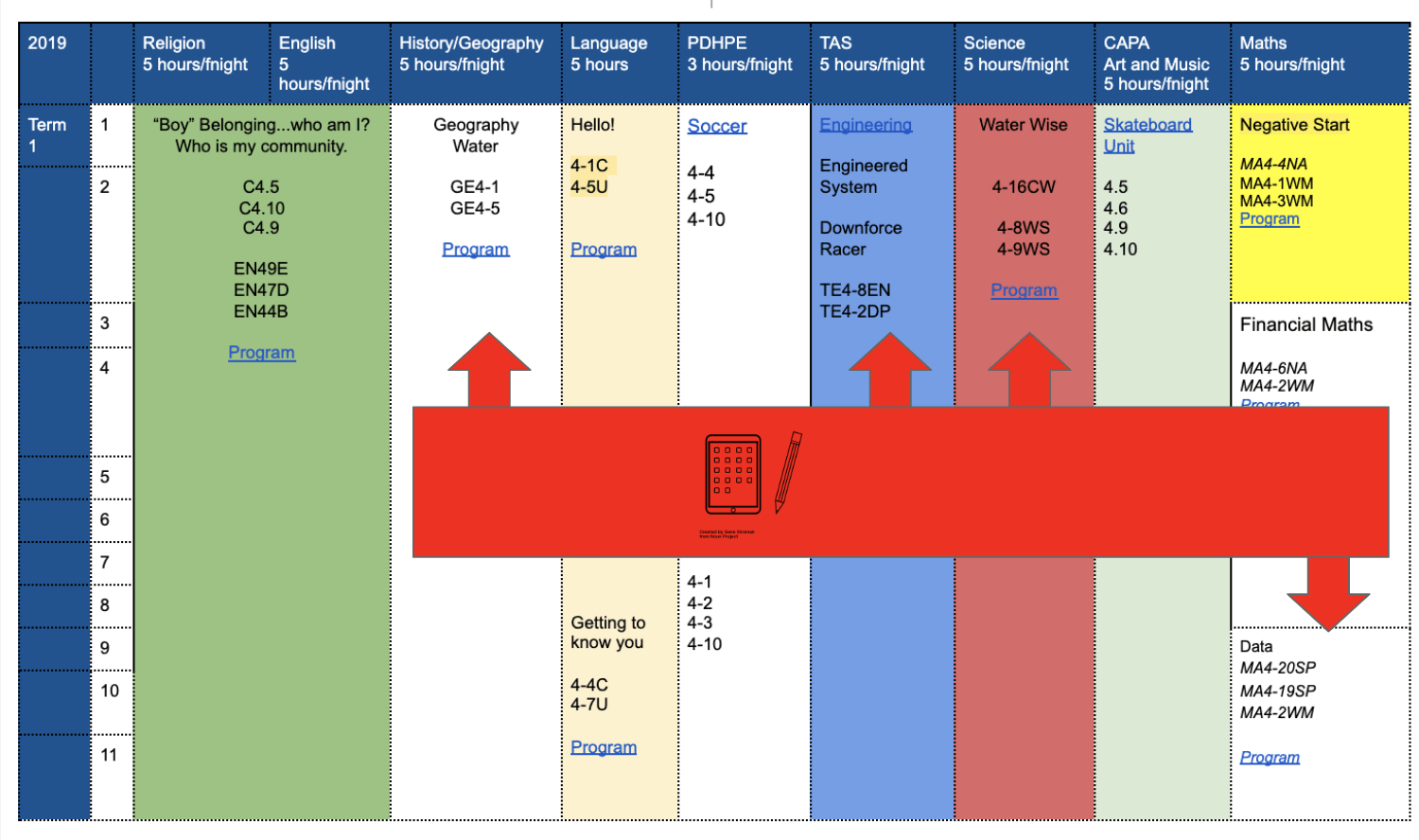What do we do differently?
There’s a few questions at the moment as to what we do differently at St Luke’s. Sometimes when you are immersed in change all the time, it’s hard to think about what you do differently, because you don’t see it so much as different…it becomes your frame of reference, and your new norm. I thought I would use this blog post to unpack some of the things that are a little different in stage 4 at St Lukes.
Students at St Luke’s work towards the application of their skills as part of our inquiry process where students are asked to apply their learning to practical experiences that transfer their knowledge into new contexts. All learning within the unit of work leads towards their greater understanding of how to complete this project.
In some subjects, we have flexible integrations across subjects where integration fits. For example, HSIE, English and Religion are timetabled together in year 7 and 8, where those topics that have a natural alignment are connected together, and those that don’t fit together, are conducted as standalone topics. Students complete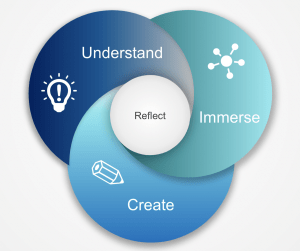 inquiry units under an inquiry cycle where students engage in units of work that have a product at the end of that unit, and all learning is directed to that product. Students work through the inquiry cycle pictured left, where students work to understand a problem like “How do we change the value of water in the world?”. Students then work through the cycle where teachers assist them to understand the problem, immerse themselves in skills, capabilities and knowledge in order to create an object to demonstrate their learning. In the case of the project above, students construct a documentary, utilising their skills learnt through their study in English, where the study of film, and more specifically, documentaries are the focus. At all stages, students are asked to reflect on their learning in order to understand where they are in the problem solving process and what they can do, and what they can do better.
inquiry units under an inquiry cycle where students engage in units of work that have a product at the end of that unit, and all learning is directed to that product. Students work through the inquiry cycle pictured left, where students work to understand a problem like “How do we change the value of water in the world?”. Students then work through the cycle where teachers assist them to understand the problem, immerse themselves in skills, capabilities and knowledge in order to create an object to demonstrate their learning. In the case of the project above, students construct a documentary, utilising their skills learnt through their study in English, where the study of film, and more specifically, documentaries are the focus. At all stages, students are asked to reflect on their learning in order to understand where they are in the problem solving process and what they can do, and what they can do better.
Students are then asked at the end of the project to blog about their progress, how they’ve achieved the outcomes, and the appropriate general capabilities, expressed in our pillars, and are asked to provide evidence for this. This then is their method of assessment, and their planning for student led conferences at the end of every six month period, and then built as a portfolio of their work for later years.
In some cases, connections occur when subjects are not timetabled together. In visual arts, music and technology, subjects are working to complete an animation where the media skills are taught in technology, soundtrack in music and drawing and art skills in visual arts. This project occurs across multiple subjects that are not run at the same time, but where consistant teaching staff allow the bridge between subejcts.
In English and HSIE, students are studying survival, what makes a livable environment, while doing a text study of a number of novels that utilise the same theme. Within a classroom then, you can see a rich in depth study of content that enables teachers to reduce the amount of repetition across subjects, and increase the depth. In this case, students are constructing a map of a livable space, and writing a short story that is set in that livable space. This involves explicit teaching around what makes a livable space, how to write an interesting narrative, feedback, drafting and refinement processes around their writing. Throughout this unit of work, all content and skills are directed towards an understanding of the end product. Throughout the unit, a pathway for students might look like:
Traditionally, there is a lot of repeated content across KLA’s. The food pyramid, for example, is studied in technology, PDHPE and science in stage 4. However, there’s not much more to learn than the food pyramid and the positions of various food groups. Where connections exist between subjects explicit links are made by those teachers, simply by constructing a single scope and sequence rather than 9 different ones. This allows teachers to make connections to other subjects, simply by doing them at the same time. For example, below, students study the value of water in HSIE, while testing water quality in science with a social justice theme that is enhancing catholic values taught in RE. Science and HSIE having the consistent theme of water is also emphasised by a data collection and analysis focus that is explicitly taught in maths, then applied across engineering units in technology, science and HSIE. This allows students multiple access to the same content, but in a way that is applied, so that they are able to use the content and skills, not just learn about them.
At St Luke’s stage based self paced approach to maths and science allows us to differentiate for students across the stage more effectively. Having two or sometimes three teachers in the class with 60 students means that students can throughout the classroom students will work independently, self pacing appropriate content, with consistent formative assessment allowing teachers to target specific needs throughout the unit of work. This may be addressing student misconception, accelerating student learning, or targeting elements of work where students do not understand. This means that students can go forward with their learning and follow areas of interest in depth.
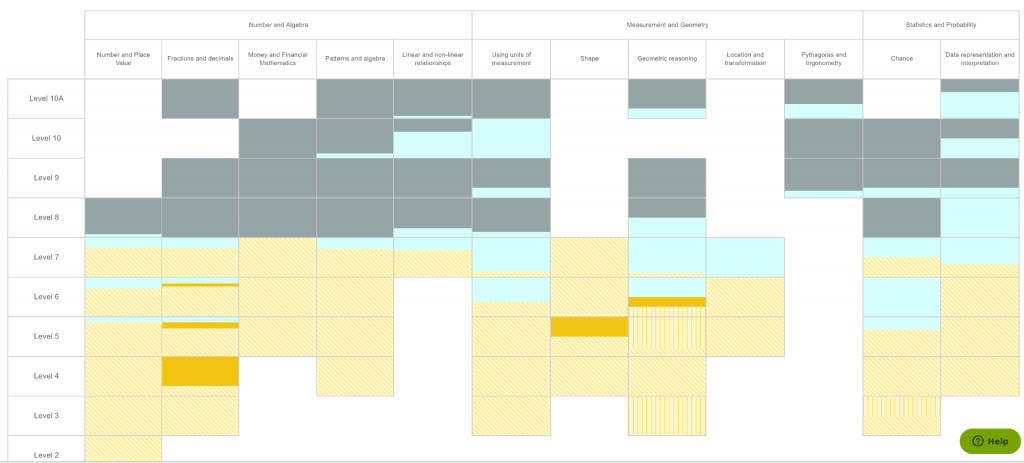 Students work independently on computer systems that allow us to formatively assess and then address specific needs throughout a unit of work. These AI based systems allow us to have a detailed vision, in the form of a curriculum grid of each students ability across domains and target work towards a students zone of proximal development. This means that students work towards specific personal goals, which are measured every two weeks against effort, accuracy and improvement.
Students work independently on computer systems that allow us to formatively assess and then address specific needs throughout a unit of work. These AI based systems allow us to have a detailed vision, in the form of a curriculum grid of each students ability across domains and target work towards a students zone of proximal development. This means that students work towards specific personal goals, which are measured every two weeks against effort, accuracy and improvement.
In Languages, students are offered a chance to select their language at the beginning of the year, and then, within the same classroom, workshops are offered by teachers within the focus area, with the teaching of inquiry based units within languages.
In the NSW Curriculum, students are required to study a single language over a continuous 12 month period. At St Lukes, we study languages in year 7, in the 100 hours required by the syllabus. It is expected that students build knowledge and understanding of sound and writing systems, and vocabulary, and analyse and develop understanding of grammatical structures and features. They reflect on the interrelationship between language, culture and identity while experiencing other cultures and diversity. 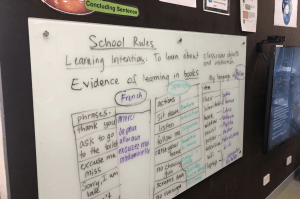
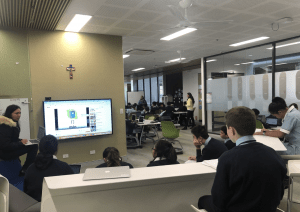
Most schools allocate a language based on teacher expertise, as opposed to student interest, however students develop their language skills by participating in a range of activities that involve:
- interacting with the teacher and peers in the classroom, and with known adults in a range of situations
- accessing and responding to a range of texts, including authentic materials
- composing a range of spoken, written, digital and multimodal texts.
With this in mind, at St Lukes’ Catholic College in 2019, with a focus on integrating choice within the classroom, we offered students the choice of language that they would like to study in year 7. Due to requirements from NESA, that we must study a single language within a 100 hour continuous block, so students are unable to change the language once they have started. However, students across year 7 have chosen from Italian, French, Spanish, Aboriginal Languages and Mandarin Chinese. All students were able to study their first choice of these languages, so all languages offered aside from Aboriginal Languages are being currently studied by Year 7 at St Luke’s, within the same classroom with common assessments and teaching and learning processes. In addition to this, AI platforms were explored to assist with students self pacing through the curriculum, as well as providing diagnostic support, were real time response to students needs can be used to support student learning.
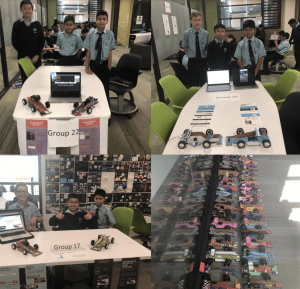 Students at St Luke’s study future focussed technology education where students, rather than creating a traditional pencil box and dust pan and broom, boxer shorts and nachos, are using computer aided design technologies to design and develop electronic cars. These projects focusing on designing 2D and 3D drawings, undertaking a process of continual improvement through prototyping processes, where students work in teams to iterate and test their prototypes in order to develop the best solutions. Students are using CAD and CAM technologies such as laser cutters, CNC mills, 3D printers and vinyl cutters, with a focus on collecting, analysing and displaying data. In this way, students are learning to follow a design process, iterate design solutions, and then gives them the technology skills to construct, package, present and market solutions to problems.
Students at St Luke’s study future focussed technology education where students, rather than creating a traditional pencil box and dust pan and broom, boxer shorts and nachos, are using computer aided design technologies to design and develop electronic cars. These projects focusing on designing 2D and 3D drawings, undertaking a process of continual improvement through prototyping processes, where students work in teams to iterate and test their prototypes in order to develop the best solutions. Students are using CAD and CAM technologies such as laser cutters, CNC mills, 3D printers and vinyl cutters, with a focus on collecting, analysing and displaying data. In this way, students are learning to follow a design process, iterate design solutions, and then gives them the technology skills to construct, package, present and market solutions to problems.Comment from parent on open night tonight “so what I love about this is that you’re asking them to apply their learning”
Comment from student in a student evaluation about what they’d learnt from a recent project: “never give up”
These are the things that we need to think about when challenged that doing something different is somehow bad. We need to remember:
